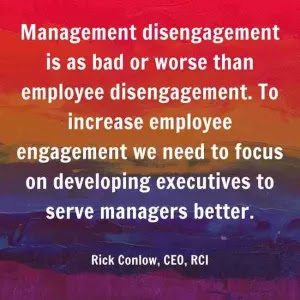#621
Discussion about a Funeral Arrangements.
Introduction:- In recent years, through my professional visits and conversations with peers, I have observed an alarming trend: a significant number of managers and leaders exhibit disengagement, lack of ownership, and minimal drive to enhance their competence. They resist keeping pace with evolving standards and systems, fail to pull domain-specific information readily available to them, and show little to no motivation to learn and grow. This inertia is damaging not only to individual careers but also to the broader organizational ecosystem. They are also reluctant to delegate.
The Root Causes of Managerial Apathy
Complacency and Comfort Zones – Many managers reach a certain level of competence and settle into a routine, believing their current knowledge base is sufficient.
Lack of Accountability – Without structured accountability mechanisms, leaders can drift into a state where performance expectations become blurred.
Fear of Exposure – Some managers avoid seeking knowledge or participating in discussions due to a fear of revealing gaps in their understanding.
Weak Leadership Expectations – Senior leadership often fails to set the right tone, letting mediocrity slip by unchallenged.
Bureaucracy and Red Tape – In some organizations, excessive procedures and rigid hierarchies discourage proactive behavior and decision-making.
Absence of Personal Growth Culture – Organizations that do not emphasize continuous learning create environments where stagnation thrives.
Over-reliance on Experience Over Learning – Many managers believe past success guarantees future effectiveness, making them resistant to updating their skills. (Hard work is better than Harvard is what the country's Prime Minister feels, so where is hope?) As is PM so are Citizens, it appears.
Fear of Failure – Managers and their direct reports hesitate to try new approaches due to the fear that failure may lead to serious consequences. This mindset stifles innovation and progress. Organizations must emphasize that failure is merely a different result from the one expected, and it should be viewed as a stepping stone to success.
Manifestations of This Apathy
Stunned Silence in Decision-Making – When critical questions are posed, managers often appear caught off guard, struggling to provide input.
Lack of Engagement in Performance Reviews – Feedback sessions feel like funeral processions rather than energizing discussions for improvement.
Failure to Leverage Available Knowledge – Despite access to industry data, standards, and best practices, managers seldom take the initiative to stay informed.
Minimal Effort in Self-Improvement – Many do not seek mentorship, coaching, or skill-building opportunities, leading to intellectual stagnation. Many do not realise that asking for help is a sign of strength, not that of weakness.
Lack of Experimentation and Innovation – Managers and teams avoid trying new methods or approaches, limiting potential breakthroughs in productivity and efficiency.
What Can Senior Leaders and CXOs Do?
Set Clear Expectations for Growth – Leadership must make it non-negotiable for managers to upskill and stay updated on industry trends. This must be linked to Performance goals/ review and incentives.
Create a Culture of Learning – Organizations should provide structured learning opportunities, including workshops, industry certifications, and peer learning.
Encourage Knowledge Sharing – Regular forums, internal blogs, and collaborative learning spaces can help managers pull information and share insights.
Foster a Safe Learning Environment – Reduce the stigma of knowledge gaps; encourage curiosity rather than punishing ignorance.
Recognize and Reward Proactive Leaders – Incentivizing engagement and self-improvement can drive motivation and performance.
Improve Performance Review Mechanisms – Make feedback sessions dynamic and focused on developmental roadmaps rather than mere assessments.
Lead by Example – Senior leaders must demonstrate an active commitment to growth and learning to inspire their teams.
Establish Trust, Empowerment, and Accountability – A culture of trust allows managers to take calculated risks without fear. Empowerment gives them the authority to make decisions, while accountability ensures they follow through. When these three aspects are strong, organizations can drive higher performance and engagement.
Showcasing Turnaround Stories in India:- One of the most remarkable transformations in recent times has been in Indian Railways under the leadership of E. Sreedharan, the ‘Metro Man of India.’ His insistence on accountability, hands-on engagement, and structured learning changed the face of metro rail projects, significantly enhancing efficiency and competence.
Similarly, organizations like Tata Consultancy Services (TCS) and Infosys have built learning academies that encourage managers to continuously upskill, ensuring they remain competitive and knowledgeable.
Another noteworthy case is Marico, where Harsh Mariwala institutionalized leadership training and managerial empowerment, ensuring that managers were not just gatekeepers but active problem solvers and innovators.
I want to end with the note that, If organizations want to prevent managerial decay, they must actively foster an ecosystem that values learning, engagement, and ownership. CXOs and senior leaders play a crucial role in breaking this cycle by setting high expectations, fostering a learning culture, and recognizing proactive efforts. The responsibility of self-improvement cannot rest solely on individual managers; it must be embedded into the DNA of the organization. Trust, empowerment, and accountability must be reinforced to drive a culture of innovation and resilience. Only then can we create a leadership pipeline that is not just competent but truly inspiring.
Karthik
22/2/25
9am.



No comments:
Post a Comment